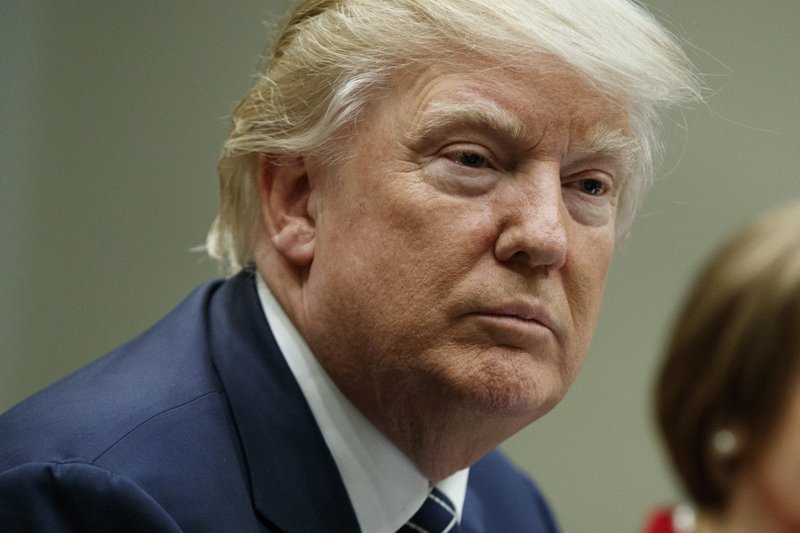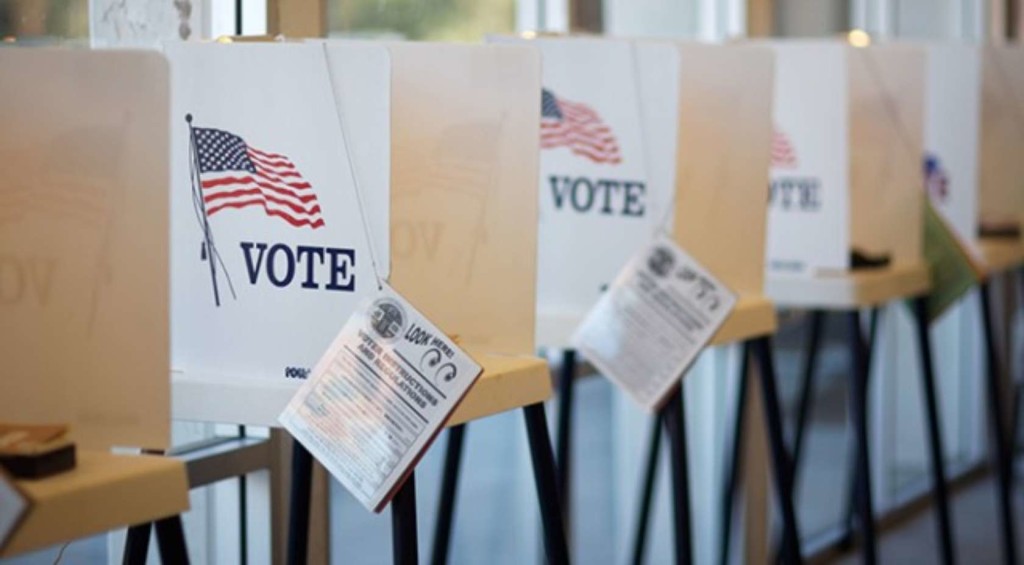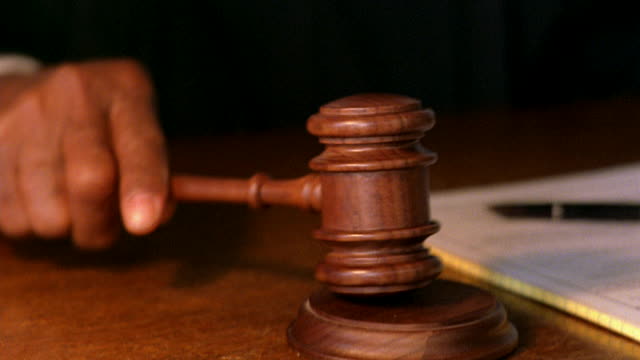Donald Trump’s voting commission criticized for lack of transparency

President Donald Trump‘s advisory commission on election integrity has integrity questions of its own — with some of its own members raising concerns about its openness. This past week, two members fired off letters to commission staff complaining about a lack of information about the panel’s agenda and demanding answers about its activities. That comes as Democratic U.S. senators are requesting a government investigation of the commission for ignoring formal requests from Congress. The criticism from the commissioners was remarkable because it came from insiders — the very people who are supposed to be privy to its internal discussions and plans. In a letter sent Oct. 17, Maine Secretary of State Matthew Dunlap said it was clear he was not being made aware of information pertaining to the commission. He requested copies of all correspondence between commission members since Trump signed the executive order creating it in May. “I am in a position where I feel compelled to inquire after the work of the commission upon which I am sworn to serve, and am yet completely uninformed as to its activities,” Dunlap wrote in his letter to Andrew Kossack, the commission’s executive director. He said he had received no information about the commission’s research or activities since its last meeting, on Sept. 12. He also said he continued to receive media inquiries about commission developments “that I as a commissioner am blind to.” A commissioner from Alabama, Jefferson County Probate Judge Alan L. King, said he sent a similar letter late last week. He said the only information he has received since the commission’s meeting more than a month ago was an email informing him of the death of a fellow commissioner, former Arkansas state lawmaker David Dunn. “Here I am on this high-level government committee, and I don’t know when the next meetings are or how many meetings there will be,” he said in a telephone interview. “I am in the dark on what will happen from this point on, to tell you the truth.” King and Dunlap are two of four Democrats on the 11-member commission. Requests for comment sent to Kossack, the commission’s executive director, and the commission’s vice chairman, Kansas Secretary of State Kris Kobach, were not returned. J. Christian Adams, a commission member who was a Justice Department attorney under former President George W. Bush, said in an email that all commissioners were receiving the same information. “Once upon a time election integrity was bipartisan,” Adams said in the email. “Apparently not all agree. That’s a shame.” The commission has stirred controversy from the moment it was established last spring. Critics say Trump is using it to find support for his unsubstantiated claims of widespread voter fraud that cost him the popular vote during the 2016 election. Democrat Hillary Clinton received 2.8 million more votes nationwide than Trump. While there have been isolated cases of voter fraud in the U.S., there is no evidence of it being a widespread problem, as Trump suggests. Critics argue the commission is stacked with people who favor voting restrictions, rather than those who want to expand access, and that the commission has a predetermined agenda that will result in recommendations making it more difficult for people to register to vote, stay registered and cast ballots. Its first significant action was to request a wide range of information about all registered voters in every state, including partial Social Security numbers, dates of birth, addresses and voting history. The commission scaled back its response after stinging criticism. A tally by Associated Press reporters nationwide shows that 15 states denied the request, raising questions about how useful the information will be. In August, the AP filed a records request with the commission under the federal Freedom of Information Act. The law specifies that agencies — including presidential commissions — have 20 business days to respond or 10 calendar days if the request was filed on an expedited basis, as the AP’s was. To date, the AP has received no response from the commission despite multiple attempts to get one. The commission’s secrecy prompted a lawsuit by the Lawyers’ Committee for Civil Rights Under Law, which alleges the commission is violating federal open meetings and disclosure laws. The group’s executive director, Kristen Clarke, said she was hard-pressed to think of another commission that had acted in such secrecy. “We have found that, in every respect, this commission has been carrying out its activities in an almost covert fashion,” she said. The lack of openness even applies to members of Congress. Democratic senators have filed at least five separate requests for information with the commission since June, and a Sept. 12 follow-up letter noted that none of those had received a response. “The Commission has not responded to a single letter from Senators with oversight jurisdiction over the Commission and continues to be rebuked for its questionable activities,” said the letter by Democratic Sens. Amy Klobuchar of Minnesota and Sheldon Whitehouse of Rhode Island. Last week, a group of three Democratic senators wrote the Government Accountability Office seeking an investigation into the commission because of its lack responsiveness and transparency. The letter signed by Sens. Michael Bennet of Colorado, Cory Booker of New Jersey and Klobuchar cited a lack of transparency on the commission and concern that its conclusions would diminish confidence in the democratic process. “It is incredible that they are not responding to any of this stuff, and that’s why it’s appropriate for GAO to take a look,” Bennet said in an interview. Republished with permission from the Associated Press.
U.S. Justice Department to dispatch fewer election observers

Justice Department officials are warning that they will be dispatching fewer specially trained election observers this year as a result of a Supreme Court opinion that gutted a key provision of the Voting Rights Act. The reduction is likely to diminish the department’s ability to detect voter intimidation and other potential problems at the polls. It comes as more than a dozen states have adopted new voting and registration rules, and as Republican candidate Donald Trump warns without evidence that the Nov. 8 election will be rigged and exhorts his followers to be vigilant against unspecified fraud. “It’s cause for concern,” said Dale Ho, director of the ACLU’s Voting Rights Project. “It’s hard to know ahead of time how significant a problem it’s going to be.” Justice Department officials said they still will dispatch hundreds of staffers to the polls and expect to have them in at least as many states as during the 2012 election, when they sent more than 780 to 23 states. “We have been doing everything we can through our monitoring program to be able to be as effective as we can be” in ensuring fair elections, said Vanita Gupta, head of the Justice Department’s Civil Rights Division. But, she said, there’s no way to “sugar coat” the impact of the court’s 2013 Shelby County v. Holder opinion, which invalidated a cornerstone of the 1965 voting law. In a video being released Wednesday, Attorney General Loretta Lynch said that though the court’s decision had reined in the Justice Department’s power, the government would work to “ensure that every voter can cast his or her ballot free of unlawful intimidation, discrimination, or obstruction.” The exact number of personnel will not be revealed until closer to Election Day. Most of the staffers will be so-called election monitors, who have less authority than federally trained election observers and rely on the cooperation of local officials to do their jobs. Unlike monitors, federal observers enjoy unfettered access inside polling places on Election Day and cannot be removed. The federal observer program has provided an important safeguard during previous elections, especially in places that tried to suppress the votes of blacks, Latinos and other minorities, said Kristen Clarke, president of the Lawyers’ Committee for Civil Rights Under Law. In past elections, for example, observers were sent to Greensboro, Alabama, after white election officials tried to deny access to black voters and to Pike County, Georgia, when an after-hours voter registration session was open to whites only. Observers and monitors have long been relied upon to defuse tensions, deter intimidation and encourage faith in the fairness of the electoral process. “They have the imprimatur of the federal government behind them that is giving them the rights and responsibilities to be in polling places,” said Nicole Austin-Hillery, director and counsel of the Washington, D.C., office of the Brennan Center for Justice. This year, as in past elections, staffers are responsible for making sure voters aren’t treated differently because of race or gender, that disabled voters are being accommodated and that voters who need them have bilingual election materials, Lynch said in her message. Still, this presidential election will be the first since the Shelby County opinion. That ruling threw out a requirement that jurisdictions with a history of voting discrimination, mostly in Southern states, seek approval from the federal government before changing the way they hold elections. The opinion opened the door to state law changes decried by voting rights advocates, including stringent new voter ID requirements. Beyond that, it nullified a formula the department had long relied on to allocate observers to jurisdictions nationwide. The department now says it will send observers only to the handful of jurisdictions that are subject to a federal court order authorizing their presence. Those include Alameda County in California; St. Landry Parish in Louisiana; Orange County in New York; and some smaller communities in Alaska. In 2012, by contrast, the department said it sent observers to 17 jurisdictions in 10 states. Benard Simelton, president of the Alabama State Conference of the NAACP, said he expected his group to try to compensate for any decline in observers by having its own monitors outside polling places. “If we see that they have a distressed look on their face, we will go up to them and specifically ask did they have problems voting,” he said. “Hopefully through that process, we will be able to take the information and channel it to the different organizations.” Republished with permission of the Associated Press.
Lawsuit seeks to balance Alabama’s all-white courts

A civil rights group is suing over Alabama’s system of electing appellate judges by statewide vote, which they contend has resulted in vote dilution and yielded all-white courts despite the fact Alabama has the sixth-largest black population in the country, where one of every four people is African-American. The Lawyers’ Committee for Civil Rights Under Law (Lawyers’ Committee), filed a lawsuit on behalf of the Alabama State Conference of the NAACP and four individual black voters alleging that the method of electing Alabama’s most powerful judges violates the Voting Rights Act. The suit maintains Alabama’s statewide method of electing members of the Alabama Supreme Court, Court of Criminal Appeals, and Court of Civil Appeals deprives the African-American community of the ability to elect any judges of their choice. “In 2016, Alabama’s appellate courts are no more diverse than they were when the Voting Rights Act was signed more than 50 years ago,” said Kristen Clarke, president and executive director of the Lawyers’ Committee. “It is time for the highest courts in the state of Alabama to reflect the diversity of the communities they serve. This lawsuit seeks to provide African-American voters an equal opportunity to elect judges of their choice, achieve long-overdue compliance with the Voting Rights Act, and instill greater public confidence in the justice system of Alabama.” The Supreme Court of Alabama has nine members and is the state’s court of last resort. Alabama’s intermediate appellate courts, the Court of Criminal Appeals and the Court of Civil Appeals, each has five members. All 19 judges are elected statewide. Currently, all 19 judges are white. “The Alabama NAACP continues to fight for equitable representation of all communities in our judicial system at all levels,” said Benard Simelton, president of the Alabama NAACP. “Alabama cannot continue to have a system that ignores segments of the community. We believe that a revised method of electing judges will lead to representation of all segments of the community.” “The fact that no African-Americans are on the Alabama Supreme Court or any other office elected statewide sends a clear message that black Alabamians remain subordinate to whites in state government, just as the 1901 Constitution intended,” said James Blacksher, long-time Alabama civil rights attorney and partner in the lawsuit. In the history of Alabama, only two African-Americans have won an election to statewide office. Every other black statewide candidate has been defeated by a white candidate. Alabama’s appellate judges have been all-white for 15 years.


